|
I believed the lie since I was small. I was only 10-years-old when my experience carved a wounding message into my heart: I would not be taken care of by anyone but myself. I was on my own. The lie ensnared me as my dad withered away. He was weak, fragile, and powerless, but it hadn’t always been that way. He had once stood like a great tree: strong, a protector who covered me with his mighty branches. By the time he was diagnosed, he had already begun to fade. I once climbed into his arms for safety, but he could no longer bear the weight of my tiny frame. When he passed, I, however unconsciously, decided that the only way to protect myself from the pain of being left alone was to choose independent solitude. “I’ve got it under control” became my most used phrase. If I refused the support and care offered to me, then I would not risk the pain of losing love when it inevitably let me down. Like a black hole, the lie swallowed me up and trapped me, even into adulthood. The birth of my first child was shadowed by the fear that he might be taken from me. Could I dare to love someone so fragile? Though my marriage is a gift of redemption, I still fought the discomfort of allowing another into the most intimate corners of my heart. I was hiding behind a thick wall of I-can-do-it-all-alone. Satan loves this wound. It is easily infected, and I was at constant risk of being overcome. The years I spent believing the lie are the same years I spent being invited to freedom in Christ by people who love me. Because of their care, I knew who He was and that He was good. I was only unsure that He was good to me. However, the years of isolation and masked strength wore me down. I was being crushed by the weight of loneliness, and I needed to be saved. So I surrendered. Carefully, I relaxed into the arms of Emmanuel. When I laid down my defense, I could see beyond the wall I had built. There was my God, and He was fighting an Enemy who cannot overcome Him. He saw me, invited me to lay my hurt at the Cross, and He cleansed me with Truth: I am the daughter of a Father who never leaves and never fails. I fight each day to remain in that Truth, remembering the ways He has fought for me and trusting that He will show up for me again. The wounding message I received is not gone, but I no longer carry it alone. I will not completely understand the role of the wounds I carry while on this side of Heaven, but I understand this: He knew that I would need to seek after Him for healing, and that when I did I would fall in love with the Healer. When I am tempted to turn away from the Lord out of my wrong belief that I stand alone, I am reminded that He designed me to depend upon His grace. As I entrust my fragile heart to God’s care, I receive His good from life’s bad. He offers better protection than the walls around my heart ever could. Romans 8:28 says, “We know that in all things God works for the good of those who love Him, who have been called according to His purpose.” Dear one, I invite you to surrender to Him. Allow him to fight for you. Get to know Him as you do. Be patient-- with God, and with yourself as He shows you how to accept love and care. The Father can and will produce goodness out of what you give Him. There is freedom in the healing. If you enjoyed this post, we invite you to read Participating in Our Own Redemption and Seeking Healing and Living in Right Relationship.
0 Comments
I watched her curly little head bounce away from me further down the hiking path and around a bend, out of my sight. I knew her older brothers would slow down so she could keep up with them, taking her under their wings. In the midst of a global pandemic, the woods were a safe space, open and free from the danger that seems to lurk everywhere these days. Nonetheless, my heart rate picked up along with my pace. What if a stranger was on the path? What if she fell and got hurt? I couldn’t see the path ahead, and I was afraid. I hurried along, my anxiety increasing as my steps forward failed to lead me to a view of my children. My thoughts turned dark while the woods around me became bright. Trapped in my own head, I failed to notice the sun breaking through, filtering light through the treetops. Until—there! The sunshine reflecting off of my little girl’s sequin covered sneakers allowed me to catch a glimpse of my babies. “Red light!” I yelled, in our family shorthand for “stop-moving-your-body-immediately.” The birds scattered, startled. My children froze in place as they waited for me to catch up with them. As I knew they would be, the boys were watching closely over their little sister. Taking her by the hand, they coached her through the mud and over the fallen branches. “See, Mama? Pretty!” my curly little girl exclaimed, joyfully depositing semi-crushed wildflowers into my hands. After rubbing her nose against mine, she joined her brothers on a moss-covered log, not registering my fear for even a moment. Exhaling a sigh of relief, I praised God in joy for great big brothers, my safe little girl, and a Father who is Light, illuminating the way. In this season of uncertainty, I find myself living that moment on the hiking path time and again: rushing forward, afraid, unable to see what is ahead. My days are filled with research and passionate conversation about schooling, and what the right choice for our family will be this fall. We deliberate over each barbecue invitation and mourn the loss of birthday celebrations that will never come to life. Parenting in a season where change is the only constant is overwhelming. I’m living that moment on the hiking path again: where I could not see, there was light. Though I was afraid, the Father was before me, protecting my little ones. So now, instead of remaining trapped by my thoughts, I am pursuing His power and protection. I am practicing seeking the light. In his letter to the Colossians, St. Paul reminds us that we can live in joy even in the midst of hardship, and he shows us how: “[We are] strengthened with every power, in accord with His glorious might, for all endurance and patience, with joy giving thanks to the Father who has made you fit to share in the inheritance of the saints in light. He delivered us from the power of darkness and transferred us to the kingdom[...]”(Colossians 1:11-12). Joy is a pursuit. By God’s great mercy, we are called out of the darkness and into the light. We are invited to share in the inheritance of the saints, if only we can pursue His power and glorious might instead of depending upon our own. When left to myself, I abandon joy for the hopelessness and despair that seems to permeate the world during this pandemic. However, when I pursue the heart of Christ, I am promised endurance and patience. I am equipped to face the reality of a sick and broken world and to remain unbroken by its weight. In His power alone, joy still abounds. Joy is a practice. Turning hands full of crushed wildflowers to praise comes with intentionality. So: let us train ourselves to joy. When we feel the dark closing in on us, we are called to joyfully give thanks to the Father and to seek His fingerprints that so graciously mark our lives—to acknowledge His many gifts. When the trees block our view, let us enjoy the sunshine filtering through their branches. When the path is rocky and unsure, let us acknowledge that He walks alongside us, and before us. When we suffer through sickness, hardship, and isolation, let us hope in God who has overcome suffering once and for all. This is joy. Grace-filled moments of contentment, happiness, peace, safety, and hope that we open our eyes to experience, even in the midst of the dark. Where happiness is fleeting and circumstantial, joy is ours to keep no matter the circumstance. Along this path I will stumble and fall. Joy will evade me as I am burdened by fear and uncertainty. But I will allow the Lord to raise me up, seeking the joy He offers me despite my skinned knees. Like my curly girl, I choose to trust that I am not alone. I choose wildflowers and light. I chase joy.
St. Joseph was a man for the ages. I like to think of Joseph as a man that walked the walk and only talked if it was necessary. I imagine that he went about his life quietly and out of the spotlight, worked hard in his carpentry, and spent time with his family in Nazareth. Imagining Joseph living today, I have similar imagery: he works for his father’s woodworking business, devotes time in his day for quality family time, and volunteers on weekends. I can picture the same figure then and now. Can you?
St. Joseph’s March 19th Solemnity celebrates faith, fatherhood, and fortitude in a way that brings people together. St. Joseph is the patron saint of the Universal Church, fathers, families, expectant mothers, travelers, immigrants, craftsmen, and many more! People all around the world look to Joseph as a model for their lives because of his deep faith, warm fatherhood, and fortitude. His deep faith evidenced in his “Yes” to marry the Virgin Mother. As we read in the Gospel of Matthew (Mt 1:18-19), Joseph was a kindhearted man who loved Mary so much that he was willing to risk his reputation. He was ready to stick by her through the betrothal and pregnancy and figure it out later, as we might say today. Matthew’s phrase is “divorce her quietly.” Scripture also tells us that God sent his angel in a dream to straighten things out with Joseph: “Joseph son of David, do not be afraid to take Mary home as your wife, because what is conceived in her is from the Holy Spirit. She will give birth to a son, and you are to give him the name Jesus, because he will save his people from their sins.” Certainly, only a man of true faith would hear these words and trust in God’s plan. His protection of the Holy Family and warmth while raising Jesus as his own. Although there is little written about Jesus’ life as a boy before his ministry, we can be sure that Joseph took great care of the Son entrusted to his care. Even when Jesus was a baby, Joseph protected him from death (Mt 2:19-23), presented Jesus at the Temple as was customary (Luke 2:22), and taught him his carpentry trade. This real-life example of fatherhood is one that lends its patronage to all fathers today. In my experience, my dad modeled the fatherhood of St. Joseph when he taught me that working hard in the service of others is one of our greatest duties on Earth. My dad also taught me perseverance. And finally, my dad taught me about optimism—an outlook on life that is forever reaching toward hope and success. Fathers have a model to emulate in St. Joseph’s quiet support and care for his family. His fortitude to face the world in times of adversity. At important times in Joseph’s life, he was challenged by God. In those moments, he rose to the challenge by making a selfless choice. In our lives as Catholics, we are often challenged at times of weakness or when life seems hard. Negativity can seem endless, problems pile on top of other problems, media stories show no hope, and family life is full of brokenness. When we are faced with these challenges, it is important to remember our forefathers in faith. We, like St. Joseph, must put our trust in God and entrust to him our lives and those of our loved-ones as well. The tumultuous world we live in will never have hope if we as Catholics are not the first ones to share God’s love. St Joseph is the perfect model of faith, fatherhood, and fortitude that we need in today’s world. Here is a short prayer to St. Joseph for his intercession. Pray this and feel God lift away your fears and despair. Oh St. Joseph whose protection is so great, so strong, so prompt before the throne of God, I place in you all my interests and desires. Oh St. Joseph do assist me by your powerful intercession and obtain for me from your divine son all spiritual blessings through Jesus Christ, our Lord; so that having engaged here below your heavenly power I may offer my thanksgiving and homage to the most loving of fathers. Oh St. Joseph, I never weary contemplating you and Jesus asleep in your arms. I dare not approach while he reposes near your heart. Press him in my name and kiss his fine head for me, and ask him to return the kiss when I draw my dying breath. St. Joseph, patron of departing souls, pray for us. Amen. 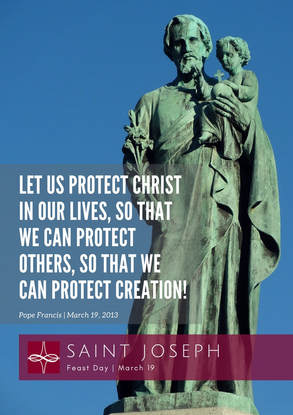 "In the Gospels, Saint Joseph appears as a strong and courageous man, a working man, yet in his heart we see great tenderness, which is not the virtue of the weak but rather a sign of strength of spirit and a capacity for concern, for compassion, for genuine openness to others, for love. We must not be afraid of goodness, of tenderness!" - Pope Francis (Homily for the Beginning of the Petrine Ministry of the Bishop of Rome, March 19, 2013) Blessings on this Solemnity of St. Joseph! As we celebrate this feast day of the Patron of the Universal Church, we also celebrate the fifth anniversary of the beginning of the Petrine ministry of Pope Francis. He chose this day particularly for this event and later inserted an invocation of St. Joseph into all the Eucharistic Prayers, not simply Eucharistic Prayer I (Roman Canon). Pope Francis not only invites us to see St. Joseph as protector of the Universal Church, but also calls us all to be protectors who live with tenderness that shows the love of Christ. What does it mean to be a "protector"? In the same homily quoted above, he offers us an answer, which he witnesses as pope. "In [St. Joseph], dear friends, we learn how to respond to God's call, readily and willingly, but we also see the core of the Christian vocation, which is Christ! Let us protect Christ in our lives, so that we can protect others, so that we can protect creation! The vocation of being a "protector", however, is not just something involving us Christians alone; it also has a prior dimension which is simply human, involving everyone. It means protecting all creation, the beauty of the created world, as the Book of Genesis tells us and as Saint Francis of Assisi showed us. It means respecting each of God's creatures and respecting the environment in which we live. It means protecting people, showing loving concern for each and every person, especially children, the elderly, those in need, who are often the last we think about. It means caring for one another in our families: husbands and wives first protect one another, and then, as parents, they care for their children, and children themselves, in time, protect their parents. It means building sincere friendships in which we protect one another in trust, respect, and goodness. In the end, everything has been entrusted to our protection, and all of us are responsible for it. Be protectors of God's gifts!" As one can see from the highlights above which link to an encyclical, two apostolic exhortations, and the bull of indiction of the Extraordinary Jubilee of Mercy, Pope Francis outlined in his inaugural homily some of the themes of the teaching of his pontificate. His actions toward those on the peripheries witness as well to how we can both protect and show tenderness, "responding to God's call" as St. Joseph did. For as he said also in his homily, "only those who serve with love are able to protect!" May the Charity of Christ urge us on! “We have forgotten that we ourselves are dust of the earth (cf. Gen 2:7); our very bodies are made up of her elements, we breathe her air and we receive life and refreshment from her waters. (2)” – Pope Francis, Laudato Si’ This past weekend in the United States we celebrated Earth Day. Earth Day was founded in 1970 as a call to action to bring greater awareness to environmental issues. It continues to serve as a reminder to us of our place on the earth and our responsibilities as its current inhabitants. The Catholic Church has taken a strong stance on the importance of preserving our planet and has highlighted the necessity of caring for creation as one of the tenets of Catholic Social Teaching. A document of the USCCB teaches that: “To ensure the survival of a healthy planet, then, we must not only establish a sustainable economy but must also labor for justice both within and among nations. We must seek a society where economic life and environmental commitment work together to protect and to enhance life on this planet.” Pope Francis has also taken steps to highlight the necessity of caring for our environment. In 2015, he released his papal encyclical on the environment entitled Laudato Si’ – On Care for our Common Home. In this encyclical, he points out our moral obligation as Catholics and as humans to care for our environment. But what can we do as people of faith to preserve the earth? What steps can we take in our daily lives to protect the world God gave us? Go outside. Experience the beauty of the earth by taking some time to be in nature. Go for a walk in your neighborhood and look at the diversity of the flowers and trees. Spend some time in prayerful contemplation near water, in the mountains, or in your own backyard. Read Laudato Si’. Pope Francis’s encyclical highlights the ways we are required as Catholics to work to save and protect the environment. He puts into words the importance, particularly at this point in history, of caring for the earth. He highlights specific problems that threaten the environment and offers suggestions for action. The Catholic Apostolate Center has a resource page on Laudato Si’ that includes a general overview of the encyclical, as well as other helpful links, news articles, and documents supporting or explaining Catholic teaching on caring for our environment. Pray with the Psalms. In particular, I invite you to pray with Psalms 8, 22, 24, 50, 65, and 84. Adding these words of Scripture to our regular prayer will help to inspire a greater desire to do more to preserve our environment. Turn off your lights and water when you are not using them. Do these and other small actions in your daily life to minimize your carbon footprint. Learn about St. Francis of Assisi. When he was elected pope in 2013, then-Jorge Bergoglio took the name of Francis because he was inspired by the life and example of St. Francis of Assisi. When writing Laudato Si’, he again took great inspiration from St. Francis: “Francis helps us to see that an integral ecology calls for openness to categories which transcend the language of mathematics and biology, and take us to the heart of what it is to be human.” (11) When was the last time you thought about St. Joseph? For many, he is a shadowy figure. And yet, he is recognized as the "protector" of the Church. His feast day is March 19th. However, we celebrate it this year on the 20th because the 19th lands on a Sunday. What's your image of Joseph? Is he young or old? Is he alone or with someone? Is he working or sleeping? Is he rich or poor? Is he strong or weak? We invite you now to clear away all those images in order to see him for the first time. Let's meet Joseph anew, as he is presented to us in the Gospel of Matthew at the birth of Jesus. Of course, the best thing to do is to pray with Matthew 1: 18-25. Here’s the cliff note version: Mary and Joseph are engaged. She is expecting. He intends to divorce her quietly but learns, in a dream, that she is carrying a son who will "save his people from their sins" (Matthew 1:21). Joseph is told to accept Mary as his wife and name the child Jesus. In this passage, we see four qualities in Joseph - compassion, righteousness, fidelity, and decisiveness - that make him a saintly man and a role model for us today. Imagine how Joseph felt about Mary's pregnancy. The marriage customs of his day were much different than ours. Were they "in love" or was the engagement arranged? Perhaps Joseph felt more hurt than angry; or disappointed given Mary's natural innocence. In any case, he responded with compassion; he did not want to see her hurt. He did, however, want to do what is right. While he never says a word, Joseph's actions continually said "yes" to God's will. He takes Mary into his home as his wife. He honors Mary's special relationship with God by not having "relations with her until she bore a son" (Matthew 1:25). He claims Jesus as his son by naming him. Joseph lived a quiet fidelity - expressed in action rather than words. A kind-hearted man, accepting the mystery of salvation entrusted to him as his God-given purpose, his vocation, Joseph adopts Jesus and raises him as his own. He protects him, teaches him, and loves him. Joseph's love for Mary and Jesus sharpened his awareness of the forces around them. When Herod threatens the life of Jesus, Joseph leaps into action leaving that night for Egypt. When the threat is gone, he brings Jesus back to his people. When he realizes some threat remains, he settles in Nazareth thus fulfilling a prophecy. His decisive action was always for the good of Jesus and Mary. As we get close to Joseph, we meet a kind-hearted man, walking humbly with his God, as he accepts, protects, and raises Jesus so he can "save his people from their sins." He plays a quiet, but essential, role in salvation history. Perhaps we, too, have a quiet role to play in salvation history. Perhaps Jesus is relying on us just as he relied on Joseph. Compassion, righteousness, fidelity, and decisiveness can help us live out our role just as they served Joseph. St. Joseph, pray for us.
Lately, I have found myself in circumstances of trial and uncertainty, unsure where the Lord is in the midst of everything. The waiting certainly parallels the season of Advent in which we await the coming of Our Lord, the Messiah. Waiting is painful and uncertainty requires trust, both of which my control-hungry self wrestles with. Our Lady of Guadalupe, whose feast we celebrate today, is the remedy to our fear and doubt. There’s something unique about the portrayal of Our Lady of Guadalupe: she wears a black belt. In the Aztec religion, a black belt indicates someone who is with child, showing that She too is waiting for Christ in solidarity. She wants to wrap her motherly love and protection over us, to mother us through the waiting, through the anticipation, and straight to Her Son Jesus Christ. Our Lady came to peoples who were deeply enthralled in the Aztec religion, with angry gods who required sacrifice. She spoke a language they understood. The image left on St. Juan Diego’s cloak for the people of what is now Mexico destroyed the power of the Aztec gods and elevated the glory of Her Son. She wants to do the same for you this Advent season. Look at these words she spoke to Juan Diego, the simple farmer turned saint, “My dear little son, I love you. I desire you to know who I am. I am the ever-virgin Mary, Mother of the true God who gives life and maintains existence.” In my circumstances, I am comforted to know that I am not abandoned. I have a Mother who will fight for me, exclaiming, “Let not your heart be disturbed. Am I not here who is your Mother? Are you not under my protection? Am I not your health? Are you not happy within my fold? What else do you wish? Do not be grieved or disturbed by anything.” As we wait for the coming of the Messiah, find comfort that Our Lady waits with us. From the moment she encountered the Angel Gabriel, to searching for a place to give birth, to fleeing to the desert, to the painful prophecy of Simeon, to the loss of Her child for three days, to the witness of His persecution, to the foot of the Cross, Mary waited. Mary waited in faith of the Father’s goodness, exclaiming, “be it done unto me according to thy will.” Just like in the image of Our Lady of Guadalupe, pregnant with Our Lord, Our Lady knows how to wait with peace. She wants to give you Her peace; she wants to speak your language, love you where you are, and guide you to the joy of the coming of the Lord. Usually at this point during Lent I am looking forward to the Feast of St. Joseph as a brief respite from my Lenten sacrifices. However, this year his Feast Day is on Palm Sunday weekend. With this early timing, it is easy for us to forget about his Feast Day. While more than a week away, I wanted to take some time to reflect on Joseph and remind ourselves of the example he serves for us each and every day. Today’s Gospel (Jn 5:1-16) describes one of Jesus’ miracles in which he commands a man to “Rise, take up your mat, and walk.” Without question the man stands up, picks up his mat, and walks away telling others of the good news. This man had no reason to trust Jesus or even think that he could ever walk again, but he believed and he obeyed. This reminds me of St. Joseph who, without question, listened to God’s call. Without question, Joseph stood by Mary and Jesus as husband, father, and protector. God asks nothing less of us in our own lives and Lent is a perfect time to reflect on whether we are listening to God’s call to “believe and obey.” We can start by going to confession. An examination of conscience can help us to see where we are not believing and obeying, while confession also gives us that clean slate that we so desperately need in order to hear God’s voice in our lives. Once we have prepared ourselves to receive God’s word, we are able to more fully align our hearts to Christ and follow in his footsteps. But this is not an easy thing to do. We will go to confession many times over the course of our lives so that we can once again learn to “believe and obey.” But this is not something that we have to do alone. Not only do we have Christ and the entire Catholic Church on our side, we also have the saints. In particular, St. Joseph is a beautiful example of living a life of faith and obedience to the will of God, as evidenced by his willingness to follow God’s plan even when he didn’t know the outcome. If we learn to live our lives as he did, then I guarantee we will continue to move closer to Christ. As I mentioned before, the Feast of St. Joseph is two weekends from now. I encourage you to look to him for guidance and strength during your Lenten journey. His silent faith, his dedication to the Holy Family, and his role in forming and raising the Son of God gives us a wonderful example by which to form ourselves to Christ and to believe and obey without question. As we approach his Feast Day, I also invite you to join me in praying a novena to St. Joseph that we may learn to silence our hearts and listen to the Word of God during this Lenten season. This nine-day series of prayers helps us to focus our minds and hearts on specific intentions and invites St. Joseph in a special way to intercede for us. Click here to join me in praying the novena to St. Joseph. “Let us allow ourselves to be filled with St. Joseph’s silence!” -Pope Emeritus Benedict, Angelus, December 2005 Nicholas Shields is a Young Professional in Washington, D.C
“For God so loved the world that he gave his only Son, so that everyone who believes in him might not perish but might have eternal life. For God did not send his Son into the world to condemn the world, but that the world might be saved through him.” (John 3:16-17)
Most parents feel incredibly protective of their children and hate to see them hurting. Chances are, if you ask your mom or dad, they would say that watching you break an arm, fall off your bike, or be picked on by a bully was painful for them. Maybe you are a parent who has experienced how hard it can be to see your child in pain. God, who is infinitely perfect, loved us so much that He was willing to sacrifice His only Son so that we would have a chance at Heaven. God knew that some would chose to reject His love. He knew exactly how painful it would be, for both Himself and the Blessed Mother, to watch His Son suffering on the cross. On Good Friday, we commemorate the ultimate sacrifice. The Stations of the Cross allow us to journey with Christ the last hours of his life on earth. Even if you are unable to physically move from station to station, it is a wonderful opportunity to mediate on all that Jesus was willing to undergo for our sake. The First Station: Jesus is condemned to death. The Second Station: Jesus carries His cross. The Third Station: Jesus falls the first time. The Fourth Station: Jesus meets His mother. The Fifth Station: Simon of Cyrene helps Jesus to carry His cross. The Sixth Station: Veronica wipes the face of Jesus. The Seventh Station: Jesus falls the second time. The Eighth Station: Jesus meets the women of Jerusalem. The Ninth Station: Jesus falls the third time. The Tenth Station: Jesus is stripped of His clothes. The Eleventh Station: Jesus is nailed to the cross. The Twelfth Station: Jesus dies on the cross. The Thirteenth Station: Jesus is taken down from the cross. The Fourteenth Station: Jesus is laid in the tomb. Imagine how the Virgin Mary must have felt when she met her Son on the way to Golgotha. Her heart must have been breaking watching Him struggle to carry the cross. Her tears must have hurt Jesus’ own heart. After Jesus fell for the third time, He got back up and continued on. He didn’t grumble or complain. It would have been easy to decide that it was too hard and to just stop. When we carry our own cross, however small that burden, it is incredibly easy to complain to God and to say that we cannot do it. We might not be able to on our own, but with God’s help, all things are possible. In His last moments on the cross before He died, Jesus was thinking of us. “Father, forgive them, they know not what they do.” (Luke 23:34) God stands ready to give us His unconditional love and forgiveness. He has already done the hard part. Through His suffering and death, He threw open the gates to Heaven. He is ready to give us the graces to get there. All we need to do is ask Him for it. Jennifer Beckmann is a Staff Assistant for the United States Conference of Catholic Bishops. 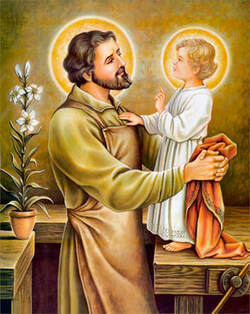 “There is nothing more holy, more eminently perfect, than resignation to the will of God.” ~ St. Vincent de Paul When we hear these words we often think of Mary declaring herself the handmaid of the Lord or Jesus crying out on the cross, “Into your hands Lord, I commend my spirit.” And yet, there is another example of complete sacrifice to God that often slips by us, that of Joseph, the silent and steadfast husband and father, who cared for Mary as the Lord commanded and raised Jesus as his own flesh and blood. “There is nothing more holy, more eminently perfect, than resignation to the will of God.” These are truly words to live by, but not easy words to live by. And yet they give us a powerful image of Joseph, a simple man, a carpenter, a husband, a father, giving himself completely to the Lord. He is a perfect example of someone who wanted to live a simple life, but found more than he could ever imagine when he placed his life in the hands of God. If I had been in Joseph's shoes I would have been afraid, and I am sure that Joseph was afraid, but we know that fear did not guide him. No, “he did as the angel of the Lord had commanded him and took his wife into his home” (Mt 1:24). This image of Joseph is a powerful image. As Saint Pope John Paul II tells us in Redemptoris Custos, Joseph was called by God to be the protector of Mary and the foster-father of Jesus. In some ways we can think of him as the ultimate human protector. He gave up his life and dedicated it to his family, to protect Mary and Jesus so that one day his own son might die a criminal’s death on the cross and save the world. He is a beautiful example of what it means to be a father and a husband, giving all of himself so that his family could live out their own call to serve the Lord. St. Joseph, though often portrayed as a silent figure in the Gospels, remains a beautiful example of fatherhood. Fathers serve in one of the most important and formative roles a child can have. They help us to grow in faith and in love, they teach us the things their fathers taught them, and we look to them for support and guidance, for strength and surety. My own father is one of the greatest men I know. During the last 33 years of marriage he has been a devoted husband and father striving to uphold our faith and me and my three brothers as Catholic gentlemen. He has given his life for his family and God, and I couldn't ask for more. On this feast of St. Joseph the Husband of Mary, it is important for us to remember our own fathers and what they have done for us. It is important to see the sacrifices they have made and how they have guided us to place complete trust in the Lord. As I continue to prepare for marriage this summer I pray and hope that I can live up to the example of St. Joseph and my father, that I can be the husband and father that God is calling me to be. This path is not easy, but I know that if all of us pursuing marriage and those who are already there give ourselves to Christ through the example of St. Joseph that we will live as God has called us to live, in the example of St. Joseph and the Holy Family. This Lenten season I invite you to pursue St. Joseph because in his silence, in his steadfast faith and loyalty to God, and in his devotion and love of his family, he calls us even closer to Christ. Sometimes we need Mary our Mother whose embrace is always loving and warm, like a Mother holding her child. But other times we need the strength of Joseph, a father’s steadfast hand guiding us on the path to Christ, a silent witness to those who have given themselves completely to serving the Lord. Nicholas Shields is a young professional in Washington, D.C.
Angel of God, my guardian dear, To whom God’s love commits me here, Ever this day, be at my side, To light, to guard, to rule, and guide. Amen 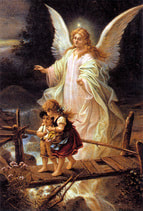 Today we celebrate the Memorial of the Guardian Angels. The prayer above was one my mother taught me when I was a child, and even now I can easily recall it. She taught me to say it as I was going to bed, a reminder that my Guardian Angel would be watching me as I slept. Throughout Scripture, we see the importance of angels and their role as intermediaries between us and God. A prime example of this is the Angel Gabriel appearing to Mary to announce to her that she would give birth to the son of God. But, beyond the known archangels, we recognize the role of individual Guardian Angels. The Catechism of the Catholic Church affirms that “from infancy to death human life is surrounded by their [angels'] watchful care and intercession. Beside each believer stands an angel as protector and shepherd leading him to life. Already here on earth the Christian life shares by faith in the blessed company of angels and men united in God" (CCC, n. 336). When I saw that today was the Memorial of the Guardian Angels, it got me thinking about this idea of a Guardian Angel, something I hadn’t thought about a lot as an adult. As children, many of us are taught about our Guardian Angel, who is continually watching over us. It’s a comforting thought, to think that there is a specific angel “assigned” to protect and watch over you…and only you! It’s creates a sense of security and safety, especially in the mind of a young child. In today’s Gospel reading, Jesus alludes to these angels, remind us to “not despise one of these little ones, for I say to you that their angels in heaven always look upon the face of my heavenly Father”. (MT 18:10) Now that I’m older, I certainly don’t think of a Guardian Angel in the same way. As a child I imagined an invisible person, following me around constantly to make sure nothing bad happened (which is a daunting task for anyone, but I pity the angel assigned to protect me, with my proclivity for clumsiness!). As comforting as the idea of an invisible protector seems to me now, I recognize the idea of a Guardian Angel as something different. Guardian Angels can be seen as a symbol of God’s enduring love for us. In the huge expanse of the human population it is often easy to feel insignificant. But the symbol of a Guardian Angel serves to remind us that God’s love is individual and complete! We were made in the image and likeness of God, and He truly loves each and every one of us on a personal level. So tonight, say a prayer to your Guardian Angel, remembering that God watches over you through these Angels, a sign of his unending Love! Rebecca Ruesch is the Blog Editor for the Catholic Apostolate Center “Then God said, ‘Let Us make man in Our image, according to Our likeness; and let them rule over the fish of the sea and over the birds of the sky and over the cattle and over all the earth, and over every creeping thing that creeps on the earth.’ God created man in His own image, in the image of God He created him; male and female He created them. God blessed them; and God said to them, ‘Be fruitful and multiply, and fill the earth, and subdue it; and rule over the fish of the sea and over the birds of the sky and over every living thing that moves on the earth.’ … God saw all that He had made, and behold, it was very good” (Genesis 1:26-28, 31).
From this exaltation we begin our reflection on Father’s Day. Many countries set aside the third Sunday of June in honor of both fathers and fatherhood. It’s usually the time when dads are shown the appreciation of their families for all their love, protection, devotion, guidance, caring, wisdom, teaching, entertainment, discipline (ouch), cooking, support, shuttling around, mentoring, coaching, and/or generosity. It’s a totally fair trade-off but also no secret: fatherhood demands much of a man. Unfortunately, not all are blessed to have a father in their lives, and there are many circumstances which contribute to this. Thankfully, God Himself has provided a model for human fatherhood, someone who He entrusted His own Son to during the crucial formative years of Jesus’ human life: St. Joseph. We look to Saint Joseph as the perfect example of paternity, as he was given the honor of being the guardian of the Holy Family. St. Joseph is not directly quoted in scripture, but what about his actions? Do they speak louder than his words (or lack thereof)? It seems that Joseph’s most frequent biblical deed besides traveling is something men can easily relate to— sleeping before taking action (see Matthew 1:20 and 2:13)... but surely there must be more to being a father than this!? Of course there is! To me, being a true (Christian) father means being a Christ-like man who bears witness to the perfect love of God, and who is a virtuous man to his children, spouse, and to all he encounters. We hear a lot about Mary’s hugely consequential “Yes” (see Luke 1:38) to the Father’s will at the Annunciation and how this is the Blessed Mother’s complete giving of herself to God. In his own soft-spoken way, though, Joseph also gave his own “Yes” and similarly submitted himself to the will of God. Even with the extraordinary circumstances of his betrothed’s pregnancy, Joseph, in the end, places his trust in the divine will and accepts the paternal role God offers him as part of His plan. Like Mary, Joseph selflessly placed whatever desires and plans he had for his future second to what he had now been called to become— Jesus’ guardian and protector. It is this obedience that makes Joseph such a worthy role model for all men. Being righteous (see Matthew 1:19), Joseph knew he did not have all the answers; let alone the experience, for the fatherhood he was being called to. Instead, he stepped aside in faithful acceptance of God’s will. As Saint John Paul II so beautifully put it: What emanates from the figure of Saint Joseph is faith. Joseph of Nazareth is a “just man” because he totally “lives by faith.” He is holy because his faith is truly heroic. Sacred Scripture says little of him. It does not record even one word spoken by Joseph, the carpenter of Nazareth. And yet, even without words, he shows the depth of his faith, his greatness. Saint Joseph is a man of great spirit. He is great in faith, not because he speaks his own words, but above all because he listens to the words of the Living God. He listens in silence. And his heart ceaselessly perseveres in the readiness to accept the Truth contained in the word of the Living God. We see how the word of the Living God penetrates deeply into the soul of that man, that just man. (St. John Paul II, Daily Meditations) This past weekend we celebrated Father’s Day, and whether the father in our lives is a biological one, a father figure, or wears a Roman collar, take the time this week to personally thank both he and God for the impact he’s had on your life. Fatherhood is no easy task and is not for everyone, but the love that flows from this holy calling comes directly from Abba God, “our Father in heaven” (Matthew 6:9-13)! May we be obedient to and cherish these men at all times! Thomas Wong is an undergraduate at The Catholic University of America currently studying abroad in Rome, Italy. |
Details
Archives
July 2024
Categories
All
|
About |
Media |
© COPYRIGHT 2024 | ALL RIGHTS RESERVED

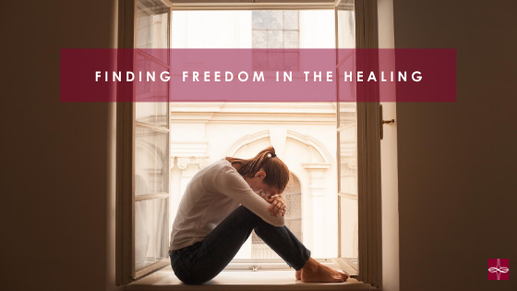



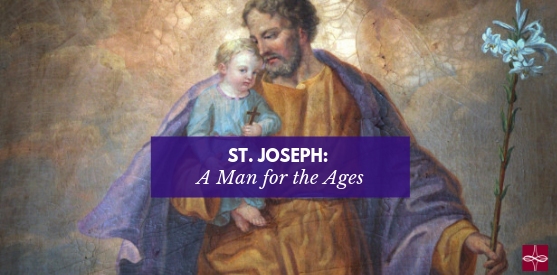

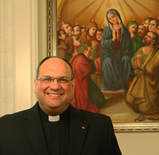


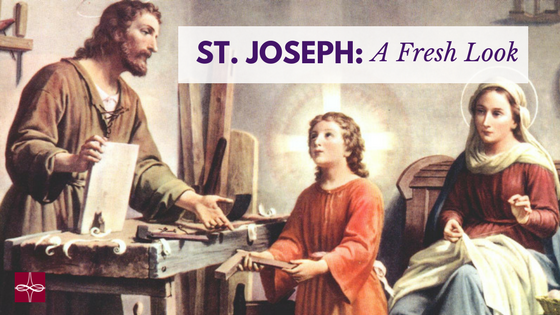
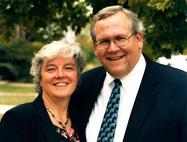
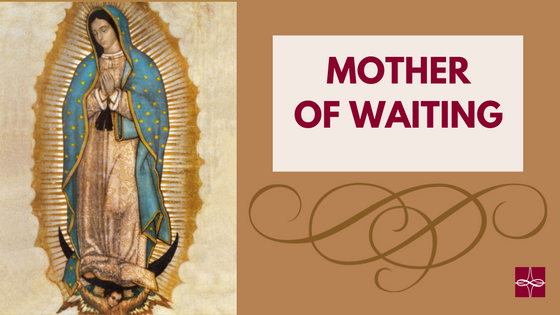

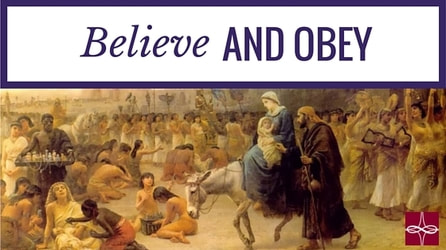
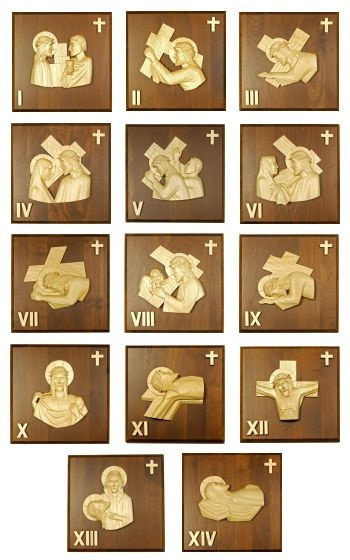
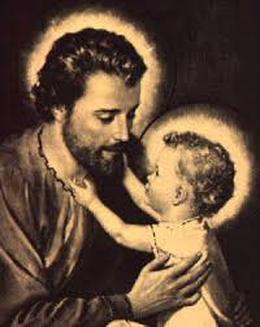
 RSS Feed
RSS Feed